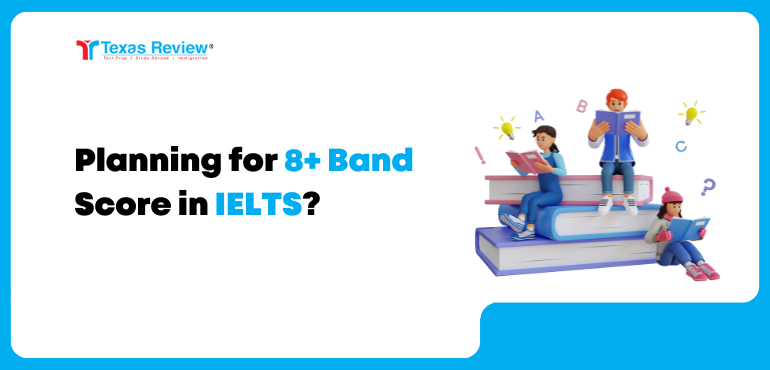
Achieving 8 or above in the IELTS exam is not an unusual intention for students, professionals, and migrants aiming to move overseas. But let’s be honest—it’s not easy. The high score represents a strong command of the English language, proper method with focused coaching, and consistent attempts.
Here’s a sensible guide to help you attain that eight+ band target.
Why Aim for an 8+ in IELTS?
An IELTS band score of eight or more opens up greater doors—be it college admissions, process possibilities, or immigration. It indicates that you’re a very good at or professional in English and able to deal with complicated language conditions fluently & accurately.
Top universities in nations like Canada, the U.K., Australia, and the U.S. often ask for higher bands in different modules. Similarly, immigration, our bodies, and employers cost rich IELTS ratings as proof of your language potential.
Understand the Test First
Before anything else, get comfortable with the format. The IELTS exam consists of 4 parts:
- Listening (half-hour)
- Reading (60 mins)
- Writing (60 minutes)
- Speaking (11–14 minutes)
For more info, click here!
Steps for achieving a higher IELTS band of 8+
Achieving an remarkable score involves not just hard work, but also effective study methods. Here’s what that looks like:
1. Know Your Current Level
- Start with a mock test.
- Understand your stand and the sections that require the most attention.
2. Plan with Purpose
- Set dreams for each section.
- Break down your prep into day-by-day or weekly commitments, balancing practice and language improvement.
3. Use the Right Materials
Stick to trusted support like:
- Cambridge IELTS books
- British Council or IDP practice substances
- Reliable online platforms & websites
Section-through-Section Tips
Listening
- Read questions before the recording starts.
- Practice with various accents (British, Australian, Canadian).
- Improve attention—don’t get caught on one solution.
- Aim for 35+ accurate solutions to reach Band 8.
Reading
- Learn to look for the basic concept and scan for keywords.
- Know all query kinds: True/False/Not Given, Matching, MCQs, and many others.
- Learn how to find records quickly.
Writing
- For Task 1, describe visuals using educational language.
- For Task 2, please follow a clear essay structure and stay on topic.
- Use various sentence structures and vocabulary.
- Practice under timed conditions and get remarks.
Speaking
- Be natural—don’t memorize solutions.
- Speak genuinely and fluently, even if you make small mistakes.
- Don’t practice unusual topics like hobbies, evaluations, journeys, and plans.
- Record yourself and work on fluency and pronunciation.
Not sure where to begin your IELTS preparation? Don’t worry—we’ve got you covered. Check out our complete guide on how to prepare for IELTS to kick-start your journey to success.
Improve your English
You can’t excel in IELTS without reviewing the guidelines; your English proficiency must be solid. Focus on:
- Vocabulary: Learn and use new words in writing/speaking.
- Grammar: Review tenses, sentence structures, and common mistakes.
- Listening: Watch shows, podcasts, and YouTube videos with subtitles off.
- Speaking: Talk to buddies, and tutors, or use talking companions online.
- Reading & Writing: Read English information and write quick summaries each day.
Practice Smarter, Not Just More
- Take mock tests often under timed situations.
- Review your mistakes to avoid repeating them.
- Track your development every week.
- Don’t hesitate to take help—training or even just an observed accomplice can keep you accountable.
Stay Consistent
Consistency makes all the difference. Practicing a little each day is better than last-minute cramming. Whether it’s an hour of analyzing or writing a quick essay, the daily routine will improve your fluency and self-belief.
Conclusion
Getting an 8+ in IELTS is achievable, however, it takes more than wishful thinking. Know the layout, follow a plan, enhance your language competencies, and be regular.
Stay targeted, take feedback seriously, and don’t yield if improvement feels slow. With time, strategy, and patience, you’ll get the score you’re aiming for.














